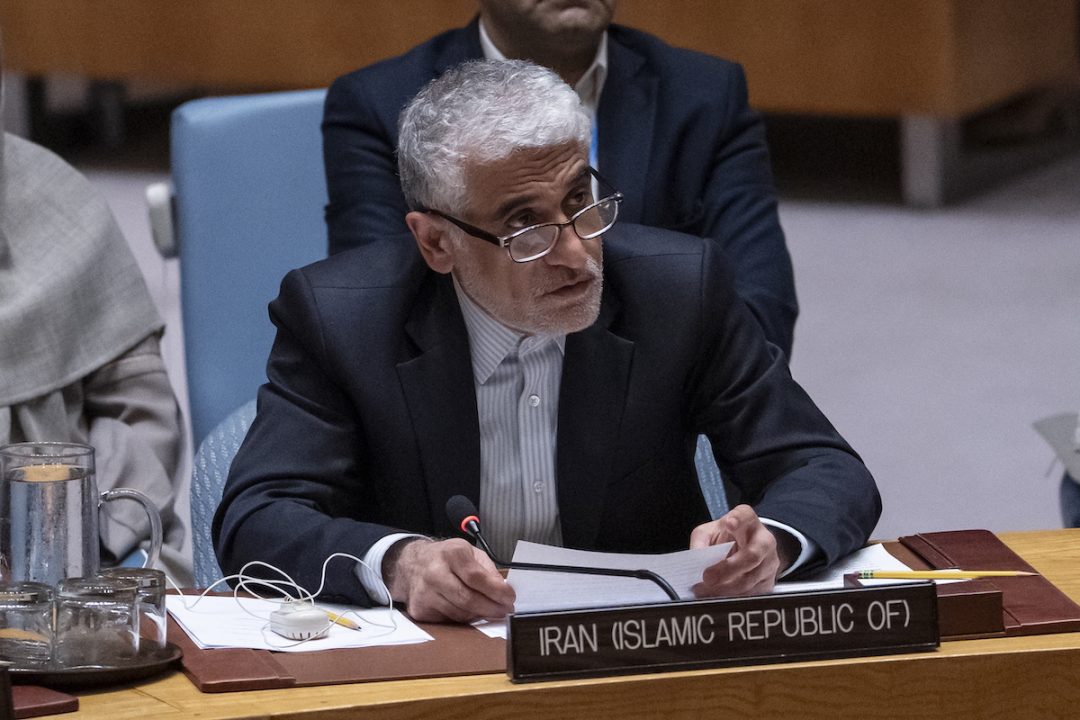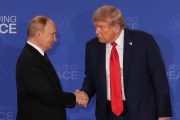
The Iranians say they have no plans to cease enriching uranium, bucking the Americans’ demands. An Iranian representative went on American TV early this week and said Iran has an “inalienable right” to a peaceful nuclear program.
President Donald Trump’s special envoy to the Middle East, Steve Witkoff, said right after his boss announced a ceasefire between Iran and Israel last week that the Iran will not be allowed to enrich uranium at all. But Iran’s ambassador to the United Nations, Amir Saeid Iravani, in an interview with Face the Nation’s Margaret Brennan on Sunday, said that’s not realistic. “I think that enrichment will not — never stop,” he told Brennan. Iravani said that as a member of the Non-Proliferation Treaty, the Iranians have a right to a peaceful nuclear program.
Brennan also pressed Iravani on Iran’s banning of International Atomic Energy Agency (IAEA) inspectors from its facilities. Iranian officials have accused the IAEA of working for Israel. They blame the IEAE’s reports suggesting the buildup of nuclear weapons for the attacks they have incurred from the Israelis and Americans. Iravani said they are no longer cooperating with IAEA inspectors because the agency did not protect the Iranians’ right to a peaceful nuclear program. “We — our assessment is that they have not done their jobs, so they failed and they prepared and pay … for such aggravation against us,” he said Sunday.
Negotiations or Aggression?
The topic of negotiations with the United States also came up. Brennan said that Trump was open to talking directly to the Iranians. But the ambassador said the Iranians aren’t interested in the Americans’ version of negotiations after being attacked. “After this aggression, it is not proper condition for a new round of the negotiation,” he said.
Brennan asked if refusing to dialogue with Trump is the best move considering he may have influenced the Israelis to halt their assault on Iran. Iravani made the point that the Iran and America have different definitions of negotiations. He said:
We should understand that what is the principle and condition for any negotiation. Negotiation is — has its — the principles, and it is a give and take process. So we should engage in the negotiation and discuss with this order … maybe we reach to a conclusion or not. But unconditional surrender is not negotiation.… If they are ready for negotiation, they will find us ready for that. But if they want to dictate us, it is impossible for any negotiation with them.
IAEA Assessment
Before speaking to Iravani, Brennan interviewed IAEA Director General Rafael Grossi. He said that until the U.S. strikes, Iran was providing some information to the IAEA, albeit not all. But now there’s total darkness, corroborating Iravani’s point that inspectors are no longer welcome. Grossi said:
There were some things that they were not clarifying to us. But our inspection work was — was constant. In particular, in this sensitive area of the number of centrifuges and the amount of material, we had perfect view. We didn’t have view on other things that we wanted to have. But on this one, it was — it was complete. It was comprehensive. And — and, of course, at the moment, there is — there is nothing.
Shortly after the U.S. strikes on the Iranian nuclear sites, Grossi told CNN’s Christiane Amanpour the IAEA “did not have proof of a systematic effort to move into a nuclear weapon.” He did, however, add the caveat that the lack of proof didn’t mean Iran wasn’t secretly building nuclear weapons. On Sunday, he elaborated on why the IEAE suspected the Iranians may have been hiding certain aspects of the operation. He said:
We have found traces of uranium in some places in Iran which were not the normal, declared facilities. And we were asking for years, why did we find these traces of enriched uranium in place “x,” “y,” or zed? And we were simply not getting credible answers.… There was material. Where is this material? So, there could be even more. We don’t know. This is why we need to go back.
Nuclear Program Stopped?
Brennan asked Grossi about the conflicting assessment in the United States about how much damage Iran’s nuclear program sustained after being bombed with 14 bunker-busting bombs. She brought up the Defense Intelligence Agency (DIA) intel leak claiming an early assessment said their program was set back only a few months. However, she added, the CIA and director of national intelligence said it would take years to rebuild. “Israel says the military program is set back many years,” Brennan added, before asking, “What’s the truth here?”
Grossi suggested it’s very possible that Iran’s nuclear program has only been set back by months, contradicting the Trump administration’s analysis as well as that of the Israelis. He said,
The capacities they have are there. They can have, you know, in a matter of months, I would say, a few cascades of centrifuges spinning and producing enriched uranium. Or less than that. But as I said, frankly speaking, one cannot claim that everything has disappeared and there is nothing there. It is clear that there have been severe damage, but is not total damage, first of all. And secondly, Iran has the capacities there. Industrial and technological capacities. So, if they so wish, they will be able to start doing this again.
Iran has always maintained that it wasn’t building nuclear weapons. Meanwhile, the IEAE has, since at least 2023, claimed that Iran had enriched uranium to 60 percent and had a stockpile sufficient to build some nuclear weapons.
Whatever ambiguity there exists about Ian’s current nuclear capabilities, one thing that remains clear is they are dead set on enriching. The Israelis have already said that if they suspect the Iranians of getting close to achieving weapons-grade level enrichment, they will strike again. And if they do, they are likely to drag the United States in with them — again.





